.webp)
Published on
March 24, 2025
What is Sanctions Screening? Types, Process, Challenges, & Best Practices
In this story

Comply quickly with local/global regulations with 80% less setup time
.svg)
.svg)
In this article, we will introduce sanctions screening and explain its various types, such as economic sanctions screening. Additionally, we will explore the top four best practices, as well as the role of technology, specifically FOCAL, in the domain of sanctions screening.
What’s in this Article?
- What are sanctions?
- What is a sanctions list?
- Common Types of Sanctions
- What is Sanctions Screening?
- How Does Sanctions Screening Work?
- Why is Screening Important for PEP Lists?
- Sanction screening best practices
- Challenges in Implementing Effective Sanctions Screening
What are Sanctions?
Sanctions are protective measures governments use to restrain the involvement of countries, companies, and individuals in financial crimes. The primary aim is to prevent these high-risk entities from carrying out illegal activities through the establishment of accounts with financial service providers across different nations.
It is worth noting that sanctions measures include various types. These types include financial sanctions, diplomatic sanctions, and military sanctions. For instance, following the Ukraine invasion, Russia and certain citizens now encounter financial sanctions, including asset seizures by some NATO nations. In fact, not only suspected terrorists and their organizations encounter sanctions, but also nations with poor human rights records, and those with a high incidence of drug trafficking.
You might be wondering which entities oversee sanctions globally. Below are four key entities that do so. We would also like to highlight that these entities work collaboratively to monitor, enforce, and adjust sanctions globally, contributing to the overall effort to maintain international peace, security, and regulatory compliance.
- Firstly, the Office of Foreign Assets Control (OFAC) in the US: OFAC is an authority within the U.S. Department of the Treasury. OFAC administers and enforces economic and trade sanctions against targeted foreign countries, individuals, and entities.
- Secondly, Her Majesty’s Treasury (HM Treasury) in the UK: HM Treasury implements and enforces financial sanctions and contributes to international efforts to address security and human rights concerns.
- Thirdly, United Nations Security Council (UNSC): The UNSC is an international body that has the authority to impose sanctions on countries and entities deemed threats to international peace and security. The UNSC adopts resolutions specifying the sanctions, and member states must enforce them.
- Finally, the International Criminal Police Organization: The interpol facilitates international cooperation and coordination in combating transnational crimes. This includes sanctions violations. It also assists member countries in enforcing sanctions and addressing cross-border criminal activities.
Suggested reading: Stay Secure in AML High-Risk Countries
In the framework of any financial institution, there must be sanctions checks on new clients during the onboarding stage. This included due diligence processes, including customer due diligence (CDD) and enhanced due diligence (EDD).
What is a Sanctions List?
Now that we introduced sanctions, let’s explore what a sanctions list is. A sanctions list is a compilation of countries, companies, and individuals identified as high-risk for financial crimes, based on their history of illegal activities.
Further, these lists include global sanctions lists from entities such as the European Union, United Kingdom, United Nations, and United States.
Furthermore, sanctions lists provide detailed records of applied sanctions. Businesses must offer information on banned individuals, entities, or groups to ensure compliance. Otherwise, they get fines and penalties.
It is important to know that these documents are publicly available and regularly updated. Inclusion in these lists can lead to consequences such as denial of financial system access, trade restrictions, or other limitations as part of punitive or preventive measures.
Common Types of Sanctions
To begin with, sanctions aim to encourage a change in the behavior or policies of a target country, group, or individual. Moreover, the different types of sanctions share this core objective yet vary based on the reasons and purposes for their issuance.
In other words, the selection of a specific type of sanction is influenced by the desired outcome. Different sanctions exert pressure on targeted entities in distinct ways, and in some cases, a combination of multiple sanctions may be applied to achieve a variety of goals. Now let’s explain the different types of sanction:
1. Economic Sanctions
This includes financial and trade penalties targeting nations, companies, or individuals economically. Economic sanctions screening is also used to achieve foreign policy objectives. Economic sanctions result in trade barriers, import/export restrictions, embargoes, tariffs, and financial constraints. This type of sanctions intends to impose significant costs, compelling policy or behavioral changes.
2. Diplomatic Sanctions
Diplomatic sanctions may include the breaking of formal relations or the removal of a country's embassy. It can also be in the form of limiting government visits or restructuring international relationships. Consequently, the aim of diplomatic sanctions is to exert pressure through diplomatic channels.
3. Military Sanctions
This type of sanctions focuses on limiting military capabilities. It can range from targeted military strikes to cut-off supplies of arms or dual-use items used in military applications.
4. Sporting Sanctions
Sports sanctions aim to impact the sporting capabilities and standing of the targeted entity. It can include preventing one country's teams from competing in international events. For example, the Western boycott of the Olympic Games in Moscow in 1980 to protest against the Soviets' invasion of Afghanistan.
5. Environmental Sanctions
Environmental sanctions target issues like deforestation, endangered species, ozone depletion, carbon emissions, and other environmental safety concerns.
Comply quickly with local/global regulations with 80% less setup time
.svg)
.svg)
What is Sanctions Screening?
Sanctions screening scrutinizes individuals and entities against sanctioned party lists maintained by governments and international organizations, including aforementioned organizations like OFAC, OFSI, the EU's Consolidated List, and the UN's Security Council Consolidated List.
Primarily associated with financial institutions, sanctions screening is an Anti-Money Laundering (AML) control. Sanction screening AML is a tool designed to detect, and prevent financial crimes, restricting trade with specific individuals, groups, agencies, and industries. Non-compliance with sanctions screening can result in significant penalties, including substantial fines and criminal proceedings.
As we have mentioned before, sanctions screening is a mandatory practice for effective sanctions compliance in regulated businesses. It falls under the umbrella of Know Your Customer (KYC). In fact, sanctions in KYC ensure thorough due diligence and risk mitigation in the fight against financial crime.
What is the Purpose of Sanction Screening?
The purpose of sanctions screening is to help businesses avoid dealing with individuals, companies, or countries that are subject to international sanctions. This process serves to:
1. Ensure Legal Compliance
2. Reduce Risks
3. Protect Reputation
4. Maintain Financial Integrity
5. Prevent Mistakes
How Does Sanctions Screening Work?
After explaining what sanctions screening is, in this section, we will explain how financial sanctions screening works. The process involves six key steps. These steps identify financial risks associated with existing and potential customers, partners, and transactions.
1. Data Collection
First of all, in financial sanctions screening, an entity should gather necessary data, including customer details, potential business partners, and transaction information, such as names, addresses, dates of birth, and nationality.
2. Data Validation
After collecting data, the validation process begins to ensure accuracy. This takes place by cross-checking against sources like ID documents, company registers, or third-party data providers to ensure data integrity.
3. Screening Against Sanctions Lists
Technology makes this step easier because it automates the sanctions screening process. Sanctions screening technology works to match the collected data against global sanctions lists, which in turn helps in identifying individuals, organizations, or countries subject to regulatory sanctions.
4. Investigation
After that and upon potential matches, trigger an investigation to confirm or reject matches by enriching client data and cross-checking details, distinguishing false positives from true matches.
5. Decision-making and Reporting
In the case of a true match, file a Suspicious Activity Report (SAR) following proper protocols. It is important to note that failure to report can result in severe penalties.
6. Continuous Monitoring
These steps are not enough without continuous. This can be done in real-time or periodically to ensure ongoing compliance with due diligence obligations.
Key Businesses That Must Conduct Sanctions Screenings
Businesses in various industries need to conduct sanctions screenings to comply with laws and avoid doing business with restricted individuals, companies, or countries. Key sectors that must perform these screenings include:
1. Financial Institutions: Banks and insurance companies check customers and transactions against sanctions lists.
2. Importers/Exporters: Companies involved in international trade ensure they aren't dealing with sanctioned entities.
3. Real Estate: Firms must screen buyers and sellers to avoid illegal transactions.
4. Energy & Natural Resources: Companies in oil, gas, and mining must ensure they don’t deal with sanctioned parties.
5. Tech Companies: Firms selling technology or software must check that their products aren’t used in restricted areas.
6. Healthcare/Pharmaceuticals: Healthcare companies need to ensure their business complies with international sanctions.
7. Manufacturers/Suppliers: Businesses sourcing materials internationally must screen partners for compliance.
8. Consulting & Legal Services: Law firms and consultants verify clients aren’t linked to sanctioned entities.
9. Retailers/Ecommerce: Online platforms ensure they don’t ship goods to restricted locations.
10. NGOs & Charities: Nonprofits must screen donations and recipients to avoid supporting sanctioned groups.
Why is Screening Important for PEP Lists?
First of all, let’s explain what a PEP list is. Politically Exposed Persons (PEPs) are individuals holding influential public positions or having close associations with such figures such as family and friends.
Due to PEPs heightened risk of involvement in corruption and bribery, posing significant threats to a company's reputation and financial stability, sanctions screening becomes crucially important. To make it clearer, the importance of sanctions screening for PEPs arises from:
- Mitigating the heightened risk associated with PEPs
- Safeguarding against corruption, bribery, and financial crimes
- Protecting a company's reputation and financial stability
- Ensuring compliance with regulatory requirements
Top 4 Best Practices in Sanctions Screening
Below are the top four best practices for an effective sanctions screening process:
1. Risk-Based Approach
- Focus on consumer risk through a risk-based approach.
- Consider factors like geography, industry, and sanctions lists to determine risk.
2. Streamline Sanctions Data
- Set clear parameters to avoid getting overwhelmed by sanctions data.
- Define the number of lists to consult and criteria for different customers.
- Implement an efficient method for processing and applying the collected information.
3. Workflow Automation
- Utilize workflow automation for effective automated sanctions screening. Check out how FOCAL implementation has transformed Aseel's compliance processes, unlocking operational efficiencies and reducing onboarding time by 87%.
- Employ automated sanctions screening using software programs to identify sanctions risks, including entities and individuals.
4. Follow Compliance Best Practices
Ensure Comprehensive Data Collection
- Keep data collection up-to-date and comprehensive.
- Utilize data enrichment software to improve data quality, minimize false negatives and positives, and enhance screening accuracy.
Use Reliable Sanctions Screening Technology
- Employ proven and reliable sanctions screening technology.
- Choose technology capable of handling high volumes, demonstrating functionality, and being user-friendly.
Comprehensive and High-Quality Data
- Screen data comprehensively using a network of global experts.
- Collaborate with multilingual experts collating data 24/7.
- Consolidate watchlists in a database for efficient screening.
Stay Updated on Sanctions Lists
- Keep pace with rapidly evolving sanctions lists.
- Stay informed about changes to ensure continuous compliance.
Screen Before Hiring and Customer Onboarding
- Implement pre-employment screening for new hires.
- Screen customers against sanctions lists to prevent trading with sanctioned entities and protect the workplace.
9 Challenges in Implementing Effective Sanctions Screening
The below challenges highlight the obstacles businesses face in effectively implementing sanctions screening processes.
1. Data Quality Concerns: Poor data quality may lead to mistakes, causing inefficiency and risking significant fines.
2. Handling Large Amounts of Data: Businesses with many customers and transactions find it hard to process data quickly.
3. Keeping Sanctions Data Updated: Regular updates to sanctions lists require continuous effort to stay current and identify new risks.
4. Resource Investment: Building a good sanctions screening program requires a significant investment in people, time, and money.
5. Staying Informed about sanctions screening Regulations: Global sanctions screening regulations vary, making it tough for businesses to stay updated and avoid potential violations.
6. Nature of Lists: Sanction lists evolve rapidly, including changes in narrative sanctions and expanding technology export controls. The importance of global sanctions screening cannot be overstated, as it protects companies from the reputational and legal risks associated with non-compliance.
7. Increased Complexity: There's growing complexity in restrictive and punitive sanction measures and screening regulations.
8. Association Risk: Sanction screening must consider association risks, such as restrictions on providing 'financial assistance' to organizations accused of terrorism under the Patriot Act.
9. Standards Misalignment: Different sanctioning bodies have diverse standards and agendas, leading to inconsistent economic sanctions.
The Role of Technology in Sanctions Screening
It is widely known that sanctions screening system technology is enabling businesses to better comply with AML regulations. It actually serves as a great asset to sanctions screening solutions. AI and Machine Learning enhance sanctions screening. How?
- It automates data analysis
- Swiftly identifying risks
- Adapting to evolving patterns.
Moreover, blockchain technology not only ensures enhanced transparency in sanctions screening but also reduces fraud risks and increases accountability.
FOCAL's Role In Sanctions Screening
In this section, we will explain the benefits of automated AML sanctions screening facilitated by FOCAL, as part of the customer screening process:
1. Efficiency
An automated sanctions screening system brings real-time checks during transactions, significantly reducing the time and effort required for screening. This ensures a swift and seamless screening process, enhancing operational efficiency.
2. Accuracy
Human errors are minimized through automation, ensuring that every potential match with the sanctions list is thoroughly analyzed. FOCAL’s precision helps in avoiding oversight and enhancing the accuracy of the screening process.
3. Scalability
FOCAL automated sanctions screening system has the capability to process large volumes of transactions. This scalability makes it suitable for both large financial institutions and smaller entities, providing flexibility in adapting to varying transaction volumes.
4. Regulatory Compliance
Automated AML sanctions screening plays a pivotal role in upholding institutions' compliance with regulatory requirements. FOCAL ensures that financial organizations adhere to the necessary regulations, fostering a culture of compliance and accountability.
Conclusion
In conclusion, understanding sanctions, their lists, types, and the key role of screening, especially for Politically Exposed Persons (PEPs), is essential. Exploring best practices and acknowledging challenges underscore the importance of a strong process. Technology, exemplified by FOCAL, transforms sanctions screening, ensuring efficiency, accuracy, and regulatory compliance.
FAQs
Q1. What is Sanction Screening Requirement?
Sanction screening requires checking individuals and entities against sanctioned lists to ensure compliance with legal restrictions.
Q2. What Are The Consequences Of Failing To Comply With Sanctions Screening Requirements?
Non-compliance may lead to severe penalties, including significant fines and potential criminal proceedings.
Q3. Can Individuals be Subject to Sanctions Screening?
Yes, individuals can undergo Sanctions Screening, especially if they are involved in activities that warrant scrutiny, such as Politically Exposed Persons (PEPs).
Q4. What is the role of Due Diligence in Sanctions Screening?
Due Diligence is crucial in Sanctions Screening, involving thorough investigation and verification to assess the risk level of individuals or entities, ensuring effective risk mitigation.
Comply quickly with local/global regulations with 80% less setup time
.svg)
.svg)
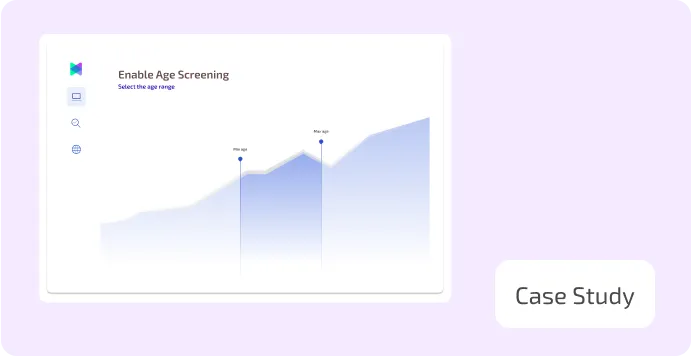
How Aseel reduced onboarding time by more than 87% using FOCAL
Learn how FOCAL empowered Aseel to achieve new milestones.
.svg)
.svg)
Mastering Fraud Prevention: A Comprehensive Guide for KSA and MENA Businesses
51% of organizations fell victim to fraud in the last two years, don't be caught off guard, act proactively.
.svg)
.svg)
Featured blog posts
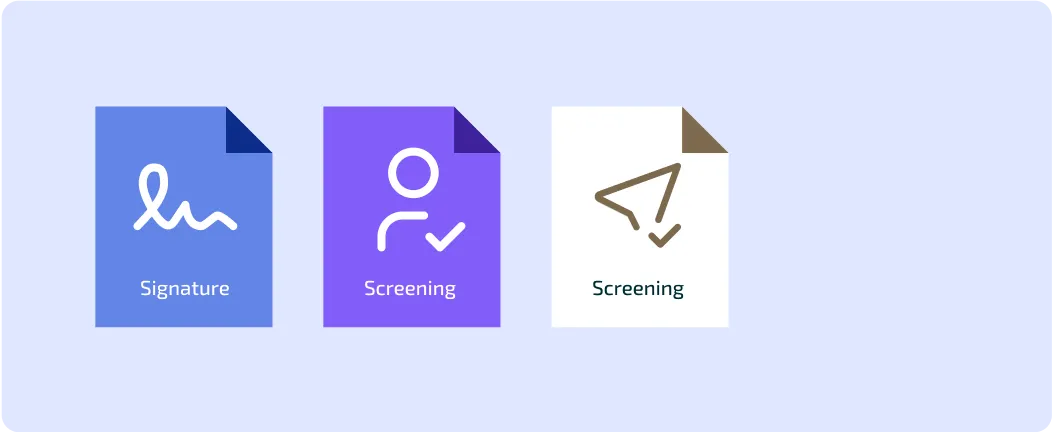

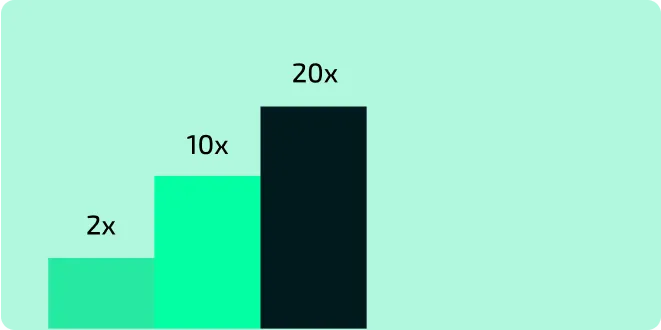
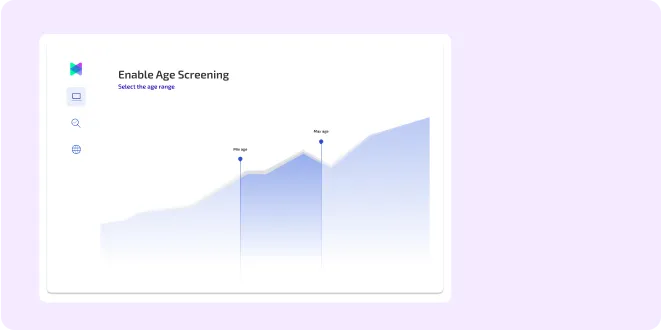
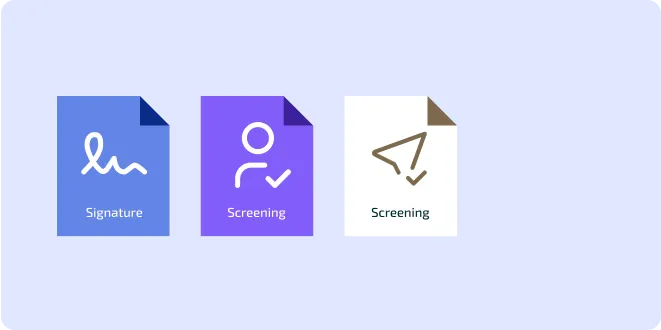
AI-Driven Precision in Fraud Risk and AML Compliance
.svg)
.svg)

.svg)
.png)




.svg)


.webp)


.webp)
.webp)


.svg)








%20(1).webp)
Comments
Leave a Reply
Comment policy: We love comments and appreciate the time that readers spend to share ideas and give feedback. However, all comments are manually moderated and those deemed to be spam or solely promotional will be deleted.